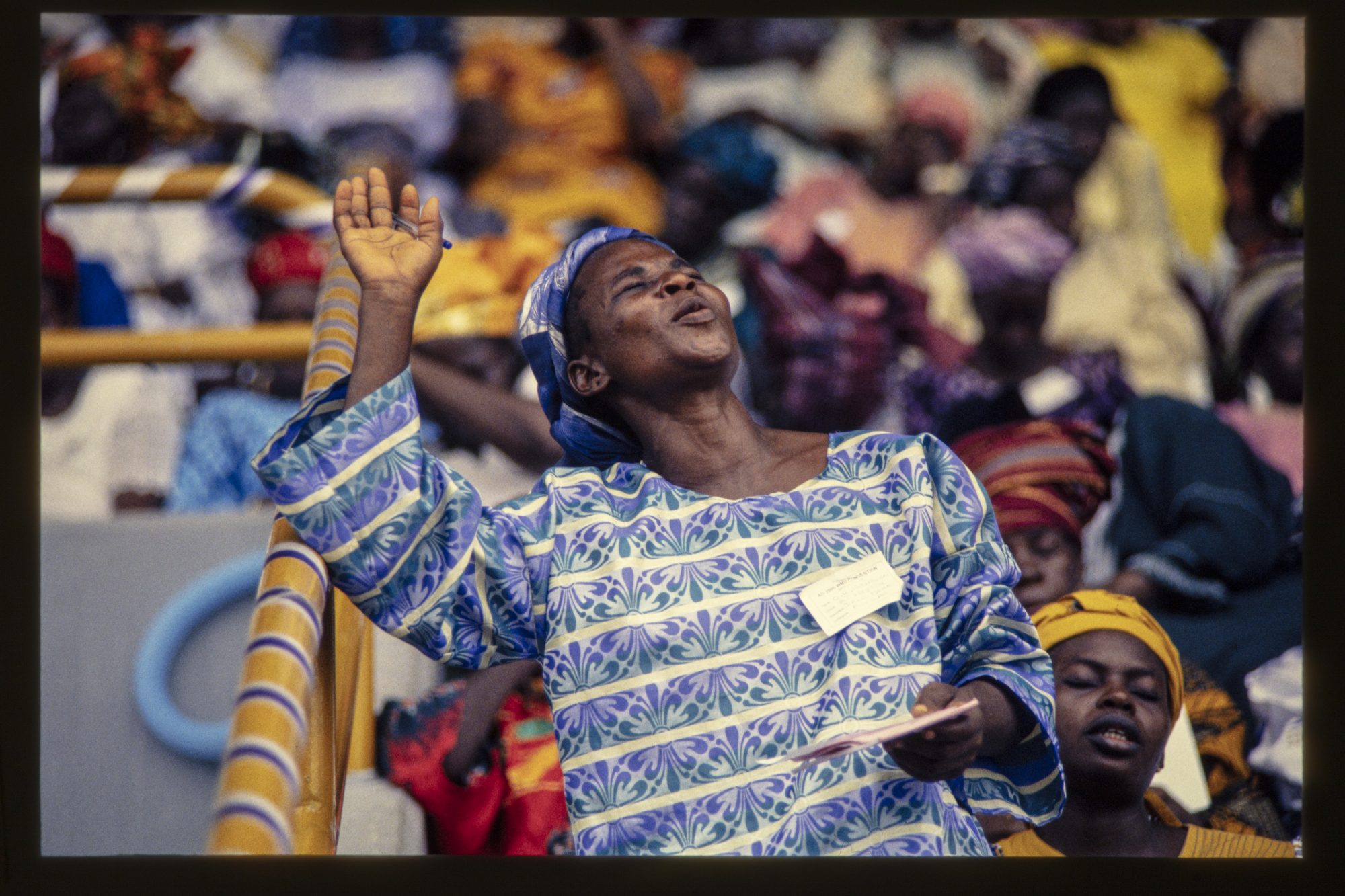Nigeria was among the first countries to receive missionaries from what then was Southern Baptists’ new Foreign Mission Board, established in 1845. Thomas Jefferson Bowen set sail for Nigeria in 1850. He began his ministry in the town of Abeokuta.
One hundred and fifty years later, when Nigerian Baptists gathered to celebrate their heritage in the town where their history began, they heard from one of their most famous sons—Nigerian President Olusegun Obasanjo.

“This is one of the most fulfilling hours of my life,” Obasanjo said. “I stand here as a man who must say ‘To God be the glory’ for this great period of Baptist history. May God grant to us more fruitful years of service.”
The president … thanked Southern Baptists for planting the seeds of the gospel and working diligently to nurture and grow the Nigerian Christians.
“Their work has influenced millions of Nigerians and other African countries. I speak as one of those touched by their work,” he said.
Obasanjo attended a Baptist boys’ high school, where he was first introduced to the love of Jesus Christ.
A historical look
In the 1800s, Obasanjo’s homeland of “Central Africa” (now called Nigeria) was known as a place of savagery and barbarism; there was a dire need for Christian mission work. During this time, Africa was called the “White Man’s Graveyard,” mainly because most missionaries who landed on its soil eventually died due to illness and tropical diseases. …
Against these odds, Southern Baptists’ first missionary to Nigeria—Bowen—started his ministry in Abeokuta. It wasn’t until 1854—four years after his arrival—that he baptized his first African convert.
Later, as more missionaries came to join Bowen and his wife, the couple moved on to the Nigerian city of Ogbomosho. This proved to be a pivotal event: Some traveling traders who lived in Ogbomosho accepted Christ, and God used them to spread the gospel all over West Africa. Meanwhile, as the Civil War in the United States raged, missionaries in Nigeria were forced to return home due to lack of financial support. Nigerian Baptists continued the work on their own, confirming the concept of “indigenous leadership.” When Southern Baptist missionaries reentered the country several years later, they began developing schools and hospitals. …
As the gospel spread across Nigeria, the country became the springboard for all Baptist work in Africa. Nigerian Christian traders shared their faith as they traveled in and out of Benin, Ghana and Togo. Small pockets of believers developed along the trade routes, and these converts began asking for missionaries and pastors.
Later, in the 1950s, Southern Baptists expanded their work in Africa, sending Nigerian missionaries to Ghana. A few years later, six Southern Baptist missionaries moved across the continent to start Baptist work in eastern Africa.
Today Southern Baptist missionaries, their African Baptist co-workers and other Great Commission Christians are making plans to take the gospel to every people group on the continent.
Spreading the gospel
Perennial leaders in evangelism, Nigerian Baptists in 1999 started 851 churches and baptized 30,150 people—a long way from the Nigerian Baptist Convention’s statistics in 1887, when there were only five churches and 149 members. Besides that growth, the convention’s current 880,000 members and 7,000-plus churches have sent 36 missionaries to serve in Nigeria, Sierra Leone, Cote d’Ivoire and Guinea. …
“I believe the reason Nigerian Baptists have been blessed is that they are taking the gospel to the world,” Jerry Rankin, IMB president, told Christians gathered at the Nigerian Baptist Convention earlier this year. “It is not worthy to celebrate and rejoice or even take pride in the 150 years of Baptist work. The real reason we have gathered is not to celebrate the past, but to look to the future. Because of the power of God, you will continue to bear fruit.”
In a letter dated 1850, missionary Thomas Jefferson Bowen predicted Nigeria would become a Christian land. Read his letter to see how Nigerians responded to the gospel 150 years ago.
Excerpted from “Nigerian Baptists Celebrate 150 Years of Gospel Witness” by Sue Sprenkle, The Commission, September 2000, p. 34-38.

